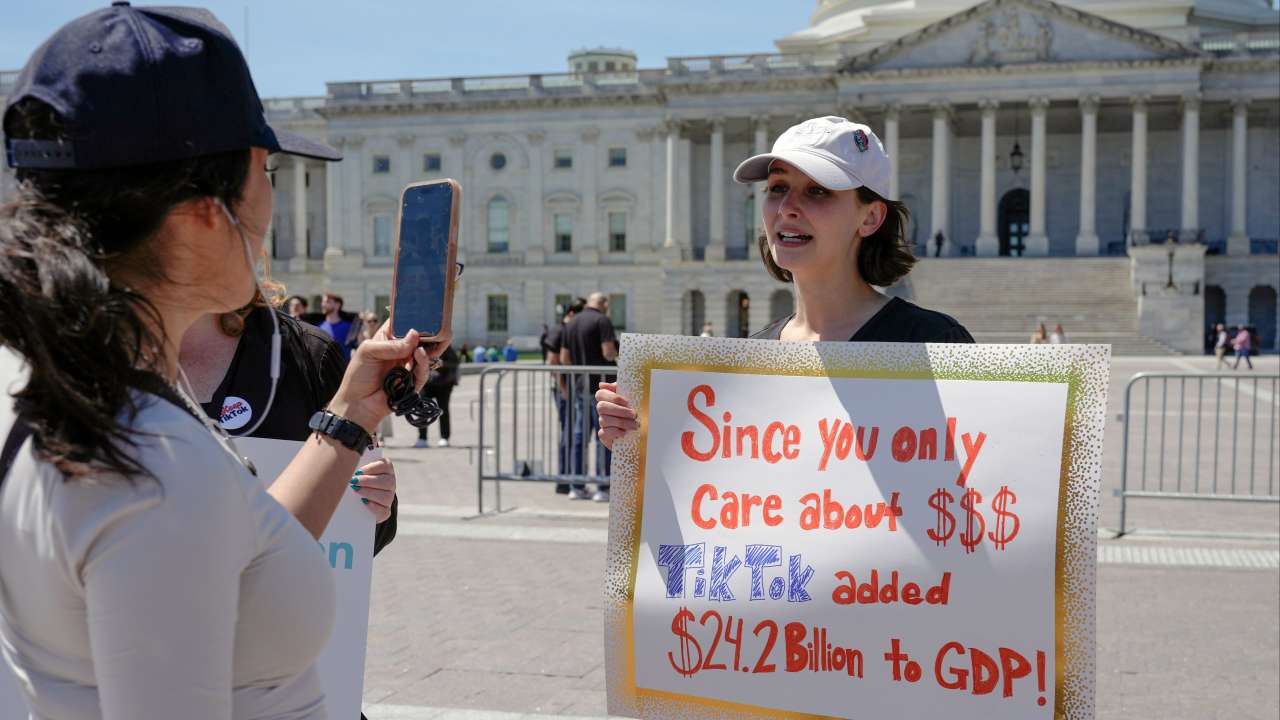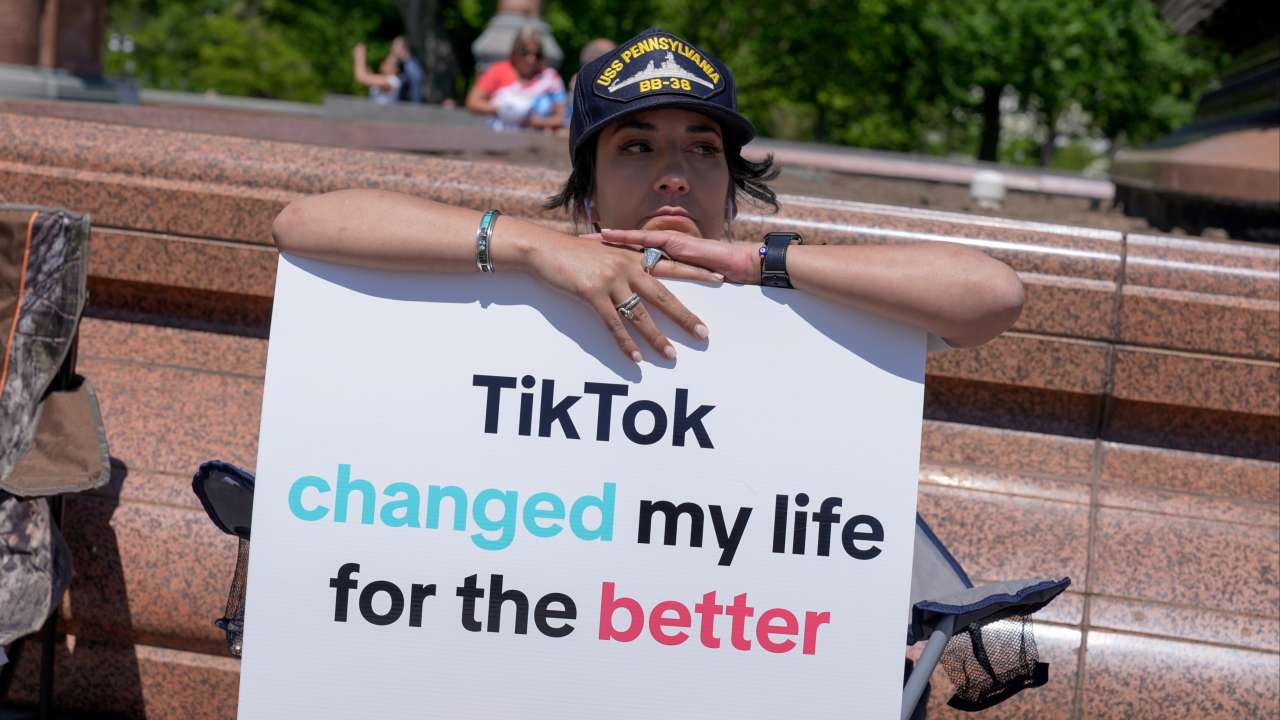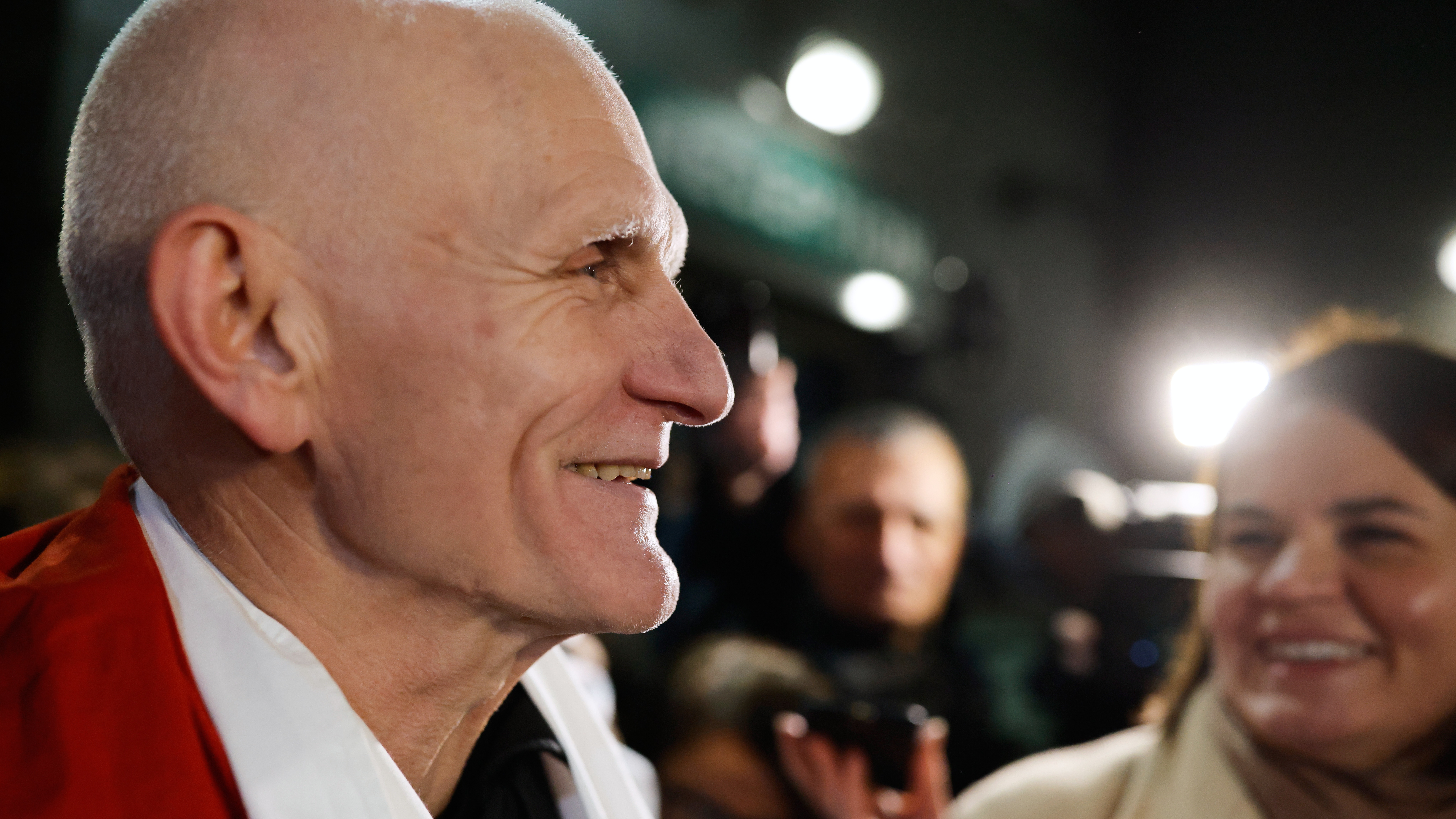TikTok’s parent company will be forced to sell the social media platform or face a ban in the US, according to legislation passed by the Senate.
The legislation needs President Joe Biden’s signature before it comes into law, but he gave the Bill his approval immediately after the ruling and is due to sign it off on Wednesday.
The move to ban or at least change how TikTok, which is owned by ByteDance, operates in the US is incredibly controversial given the platform’s popularity across the States.
Around 170 million Americans use TikTok, with many content creators relying on the short-form video app as their main source of income.
The TikTok legislation was included as part of a larger $95 billion (£76.4 billion) package that provides foreign aid to Ukraine and Israel and it passed with a large majority.
Republicans decided last week to attach the TikTok Bill to the high-priority aid package, which sped up its passage through Congress.
ByteDance has nine months to sell TikTok, with a possible three-month extension if a sale is in progress.
The Bill would also ban the company from controlling TikTok’s algorithm, which is the crucial part of the app that feeds users videos based on their interests and has allowed the platform to become as popular as it is.
The passing of the legislation is a culmination of long-held fears, within both Democrat and Republican spheres, over Chinese threats and the ownership of TikTok, given its huge, and often young, user base.

For years, lawmakers and administration officials have expressed concerns that Chinese authorities could force ByteDance to hand over US user data, or influence Americans by suppressing or promoting certain content on TikTok.
Senate Commerce Committee Chairwoman Maria Cantwell said Congress was “not acting to punish ByteDance, TikTok or any other individual company.”
“Congress is acting to prevent foreign adversaries from conducting espionage, surveillance, maligned operations, harming vulnerable Americans, our servicemen and women, and our US government personnel,” she said.
People who oppose the Bill say the Chinese government could easily get information about Americans in other ways, including through commercial data brokers that traffic in personal information.
Many opponents of the TikTok measure argue the best way to protect US consumers is through implementing a comprehensive federal data privacy law that targets all companies regardless of their origin.
They also note the US has not provided public evidence that shows TikTok is sharing user information with Chinese authorities, or that Chinese officials have ever tampered with its algorithm.
Banning TikTok would be “an extraordinary step that requires extraordinary justification,” according to Becca Branum, a deputy director at the Washington-based Center for Democracy & Technology, which advocates for digital rights.
“Extending the divestiture deadline neither justifies the urgency of the threat to the public nor addresses the legislation’s fundamental constitutional flaws.”
Senator Ron Wyden, a Democrat who voted for the legislation, said he has concerns about TikTok, but that he’s also worried the Bill could have negative effects on free speech, doesn’t do enough to protect consumer privacy and could potentially be abused by a future administration to violate First Amendment rights.
“I plan to watchdog how this legislation is implemented,” Mr Wyden said in a statement.
China has previously said it would oppose a forced sale of TikTok, and has again signalled its opposition.
TikTok, which has long denied it’s a security threat, is also preparing a lawsuit to block the legislation.
“At the stage that the bill is signed, we will move to the courts for a legal challenge,” Michael Beckerman, TikTok’s head of public policy for the Americas, wrote in a memo sent to employees on Saturday and obtained by The Associated Press.
“This is the beginning, not the end of this long process,” Mr Beckerman wrote.
Other countries have placed restrictions on TikTok, including Nepal, which announced a ban in November because the platform was disrupting “social harmony”.
Canada and the UK have banned TikTok on government phones following advice from cyber security experts.
Follow STV News on WhatsApp
Scan the QR code on your mobile device for all the latest news from around the country




























